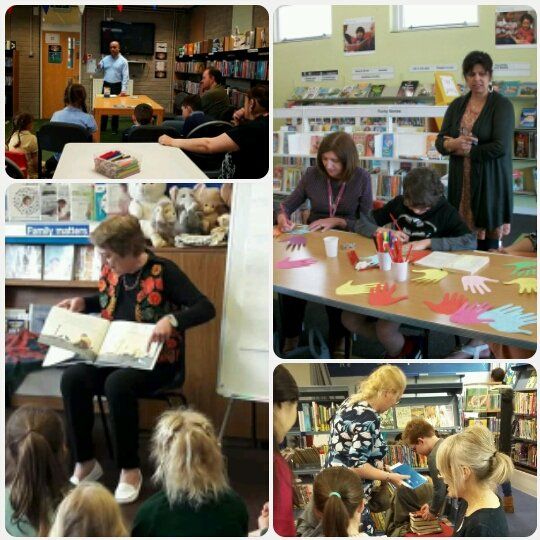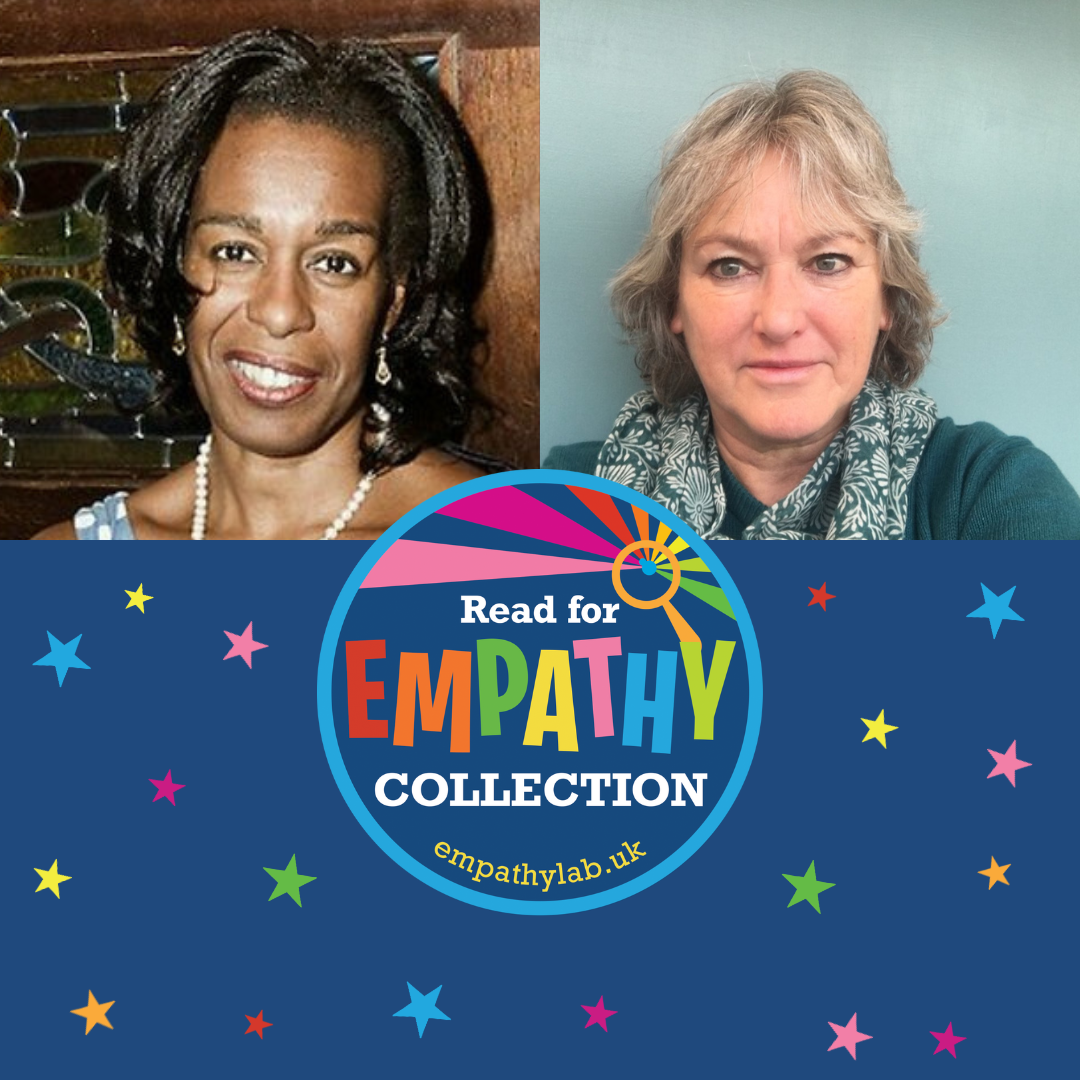Empathy Day in public libraries
- By EmpathyLab
- •
- 17 May, 2018
- •

53 libraries taking part in Empathy Day 2018 across the UK
Many have highlighted concerns about increases in community tensions, and want to deploy their book collections to help us all understand each other better. Since research shows that books expand our real-life empathy, libraries have an inspiring role to play – the borrowing of books could in itself be seen as an act of empathy, through the sense of connection through shared community ownership.
Sandwell’s Dawn Bastable says: “We are extending Empathy Day throughout June and encouraging everyone to think about what it might be like to walk someone else’s path in life. We see this as a great message to help with community cohesion and greater understanding of each other. Every library in Sandwell will be focusing on empathy and using the 2018 Read For Empathy collection; we will run activities to help combat loneliness, recruiting Happy to Chat volunteers and have a Great Get Together event".
Staffordshire’s Liz Gardner says: “libraries are a great example of 'empathy in action' on a daily basis so it is really exciting for Staffordshire Libraries to be taking part. Our 43 libraries will be creating empathy walls, encouraging local people to share their 'empathy issues' and possible solutions - our Knit and Natter group will debate the issues raised. Burton Library where I am based is making empathy a major June focus, including Year 6 pupils visiting to discuss their experiences and create empathy pledges, and a Swap Your Reading Life pilot".
EmpathyLab is working with four library services –Essex; Libraries Unlimited Devon ; St Helens and Sheffield - on a special Engaging Libraries project funded by Wellcome Trust and Carnegie UK. This sees each service asking local communities to identify issues where more empathy would help. People have highlighted loneliness, inter-generational relationships and being different, and each service has involved authors (Helen Moss, Gillian Cross, Bali Rai, Sita Brahmachari) – to partner with local people to develop linked Empathy Day events.
Every library in Wrexham and Manchester is taking part. In Manchester they are running empathy-focused craft events, rhyme times and film show; authors Alan Macdonald and Tarnya Cole will work with children. Kirklees Library Service are working with Chitra Soundar –one of the authors on our #ReadforEmpathy booklist this year. Many library services such as Gloucestershire and Brighton and Hove will run empathy rhyme times; others are planning activities in their prison libraries.
Public libraries have always been at the very centre of their communities, a place where generations can come together to share experiences, and people from different backgrounds can get to know each other. Libraries offer sensitive support to vulnerable people and do their utmost to make their services accessible– for example for those living with dementia or autism. We couldn’t be prouder to be partnering with them on Empathy Day.

The collection consists of 65 books for 3-16 year olds, each chosen for its unique contribution in building young people’s empathy.
The primary collection for 3-11 year has 40 books; the secondary collection features 25 books for 12-16 year olds.

I am very fortunate to have been on the Read for Empathy booklist judging panel over the past few years.
I’m also a practising classroom teacher so I would like to consider how the books on the list can influence what happens in a school.
Firstly, along with many other schools, reading aloud is an important part of our school day, every day, almost without fail. All the teachers at my school are aware of the EmpathyLab booklist, and often use it as a basis for choosing their next class read. Knowing that the books touch on important aspects of our children’s lives is key; we all understand how important representation is in stories. These are books that make a difference, that lead to passionate discussions in the classroom and can actually influence children’s behaviour .
The booklists become increasingly valuable. We have a couple of hundred empathy texts at our school – they are there on merit. Staff often refer to previous lists if there as a particular aspect of empathy that they want to include or share with the children.
Our Year 6 Reading Champions often seek out picture books from the list to take in to KS1 and Reception when they read stories, so we already have the next generation educating each other about the importance of empathy. I love the fact they often meet beforehand (they tend to work in twos) to discuss what questions they might want to ask the children once the story has been read. After each booklist is released, they also spend several of their Friday recommendation slots in assembly talking about a couple of the books. We have parents in on our Friday assembly so it’s a great way to share the texts with them and help raise their awareness of our work.
We often use the books as our teaching texts for English, partly because they encourage excellent writing but also because they provide a fantastic opportunity for our pupils to develop their empathy skills. The Wild Robot by Peter Brown, Miraculous Journey of Edward Tulane by Kate DiCamillo, Freedom by Catherine Johnson, Eyes that Kiss in the Corners by Joanna Ho and A Street Dog Named Pup by Gill Lewis are all books that have made in into our English curriculum as a result of being on one of the Read for Empathy booklists. Well, that’s not strictly true - Edward Tulane was there before that as it’s one of my favourite ever books, but you hopefully take my point.
Reflecting on our empathy journey over the past few years, I’ve also found that the more books children read that address empathy, where they can relate to the characters and their choices, the more books they want to read. It’s almost a virtuous circle. Many begin to realise that such books can empower them to think about situations.
For example, as soon as we finished A Street Dog Named Pup last year, several of them immediately wanted to read other books by Gill Lewis. Because empathy is a thread that runs through much of her work ( Gorilla Dawn , Moon Bear , The Closest Thing to Flying and so on). Thanks to EmpathyLab's lists, I was able to point them in the direction of several other books, by her and others.
I think we agree that teaching children about empathy and providing them with opportunities to develop it is one of the most important gifts we can give them as adults. The fact that empathy has gone from being something that schools sort of understood a few years ago to being something that has got an increasingly solid evidence base is crucial.
There’s always been anecdotal evidence that reading stories is important for children and that it can change how they think but now that’s backed up with research. The empathy revolution (and it is a revolution) is only going to pick up more momentum over the next few years as the need for it becomes ever more apparent. Working in schools and in the world of children’s books means that we’re in the front line. There’s nowhere else I’d rather be.
